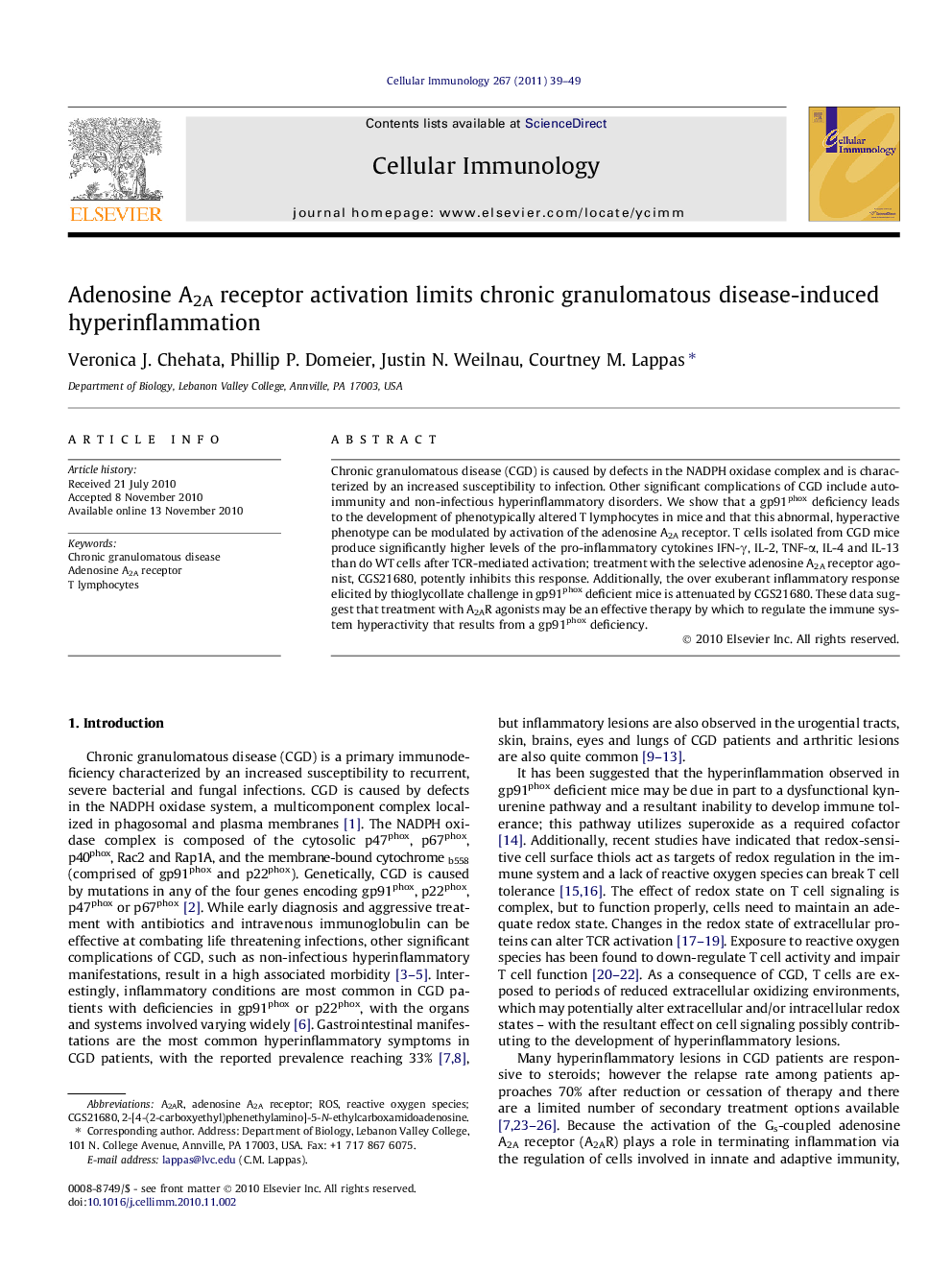| Article ID | Journal | Published Year | Pages | File Type |
|---|---|---|---|---|
| 2167475 | Cellular Immunology | 2011 | 11 Pages |
Chronic granulomatous disease (CGD) is caused by defects in the NADPH oxidase complex and is characterized by an increased susceptibility to infection. Other significant complications of CGD include autoimmunity and non-infectious hyperinflammatory disorders. We show that a gp91phox deficiency leads to the development of phenotypically altered T lymphocytes in mice and that this abnormal, hyperactive phenotype can be modulated by activation of the adenosine A2A receptor. T cells isolated from CGD mice produce significantly higher levels of the pro-inflammatory cytokines IFN-γ, IL-2, TNF-α, IL-4 and IL-13 than do WT cells after TCR-mediated activation; treatment with the selective adenosine A2A receptor agonist, CGS21680, potently inhibits this response. Additionally, the over exuberant inflammatory response elicited by thioglycollate challenge in gp91phox deficient mice is attenuated by CGS21680. These data suggest that treatment with A2AR agonists may be an effective therapy by which to regulate the immune system hyperactivity that results from a gp91phox deficiency.
